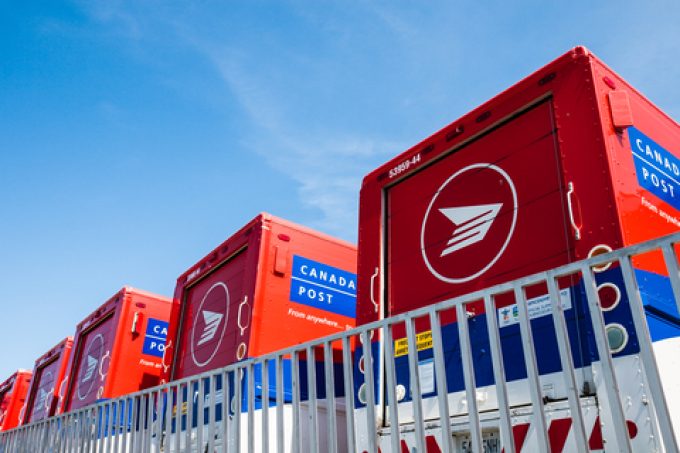US port strike called off as ILA and USMX reach 'tentative' agreement
Shippers can breathe a sigh of relief, the east and Gulf coast port strike slated ...
F: MAKING MONEY IN CHINAMAERSK: THE DAY AFTERDHL: NEW DEALGXO: NEW PARTNERSHIPKNIN: MATCHING PREVIOUS LOWSEXPD: VALUE AND LEGAL RISKMAERSK: DOWN SHE GOESVW: PAY CUTFDX: INSIDER BUYXOM: THE PAIN IS FELTUPS: CLOSING DEALSGXO: LOOKING FOR VALUE
F: MAKING MONEY IN CHINAMAERSK: THE DAY AFTERDHL: NEW DEALGXO: NEW PARTNERSHIPKNIN: MATCHING PREVIOUS LOWSEXPD: VALUE AND LEGAL RISKMAERSK: DOWN SHE GOESVW: PAY CUTFDX: INSIDER BUYXOM: THE PAIN IS FELTUPS: CLOSING DEALSGXO: LOOKING FOR VALUE

The strike that has paralysed Canada Post is spilling into commercial courier traffic, as express carriers struggle with elevated volumes and impose restrictions on shipments.
Over 55,000 Canada Post employees have been on strike since 15 November, in a dispute over wages and weekend deliveries. The union has argued that wages have fallen short of inflation and accused management of wanting to hire part-time workers at a lower rate for weekend deliveries, potentially cutting into the job security of existing employees who could staff weekend shifts.
Canada Post, which delivered a C$748m (US$527.63m) pre-tax loss in 2023, is a shadow of its former self in the market. Last year, it moved close to 300m packages, a steep drop from its record of 389m parcels in 2020, but up from 2022’s 286m. Its share of the Canadian parcel market has shrunk from 62% in 2019 to 29% last year.
However, it still plays a huge role for Canadian businesses and consumers. According to the Canadian Federation of Independent Business, 80% of the nation’s small businesses rely on Canada Post for shipping goods, invoicing and receiving payments.
Coming at the peak of parcel shipping, it was only a matter of time before the outage of the postal service would take a toll on the market. Volumes have piled up at commercial carriers, prompting the large players to put the brakes on some non-core parcel traffic.
Last week, non-asset-based courier companies, which rely on transport by the likes of Purolator Courier, FedEx and UPS, found themselves impacted. Toronto-based eShipper, which serves over 25,000 Canadian businesses, notified customers that UPS was imposing a 48-hour embargo on its traffic, while Purolator was capping the number of parcels it was accepting at one drop.
Purolator, the express parcel subsidiary of Canada Post, and the largest player in the market, said it decided to “temporarily pause service to some select partners, including third-party platforms”, adding: “This was necessary to maintain the integrity of our network, ensure the health and safety of our employees and allow us to prioritise critical shipments.”
FedEx also tightened acceptance restrictions with “a temporary limit of five packages per drop-off” at its retail locations.
The situation has put shippers in a quandry: according to freight tech company project44, shippers use about six carriers for final-mile services in Canada, but fewer than three for inbound and outbound traffic. This limited market is highly vulnerable to disruptions, commented project44.
Comment on this article